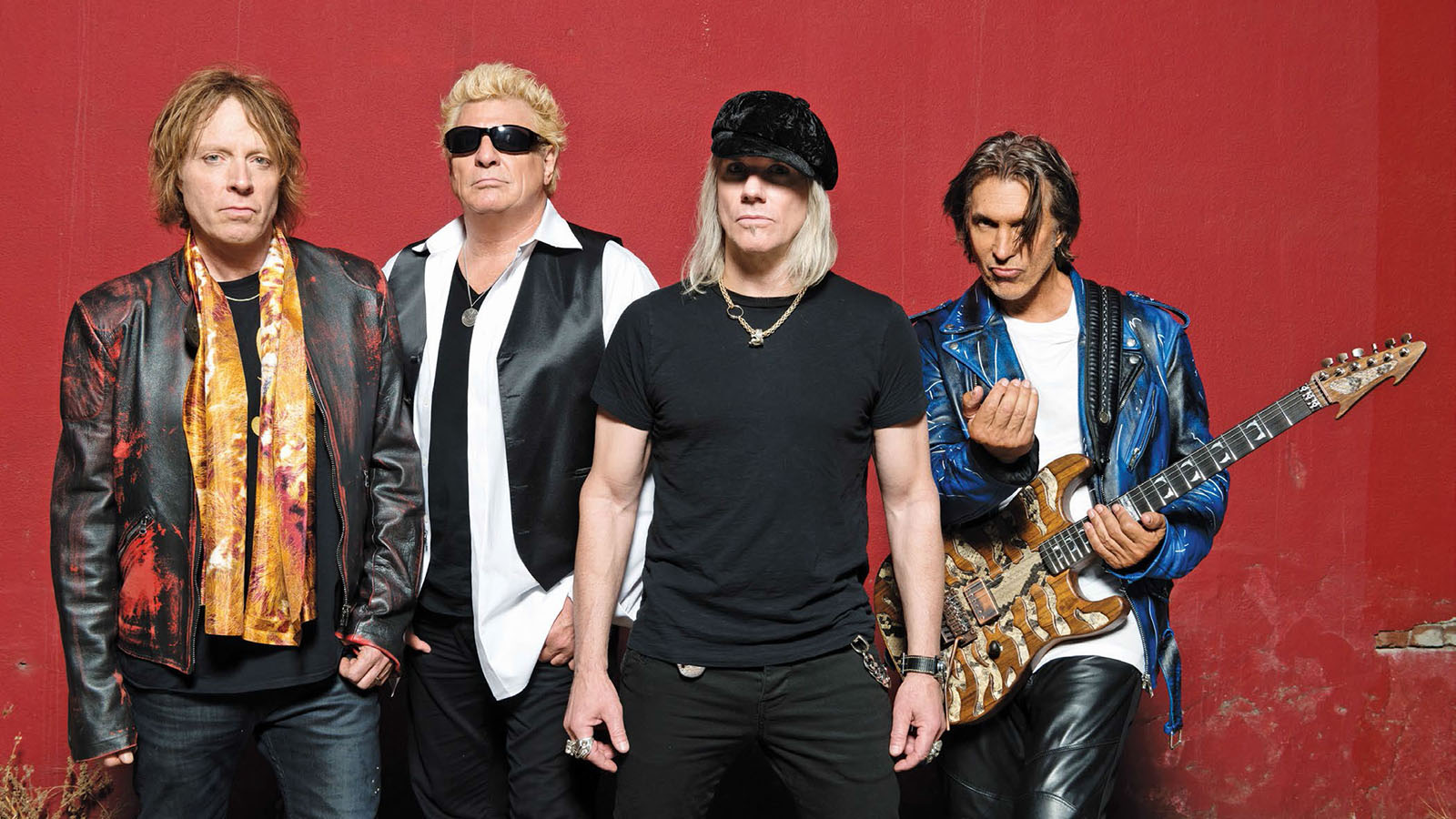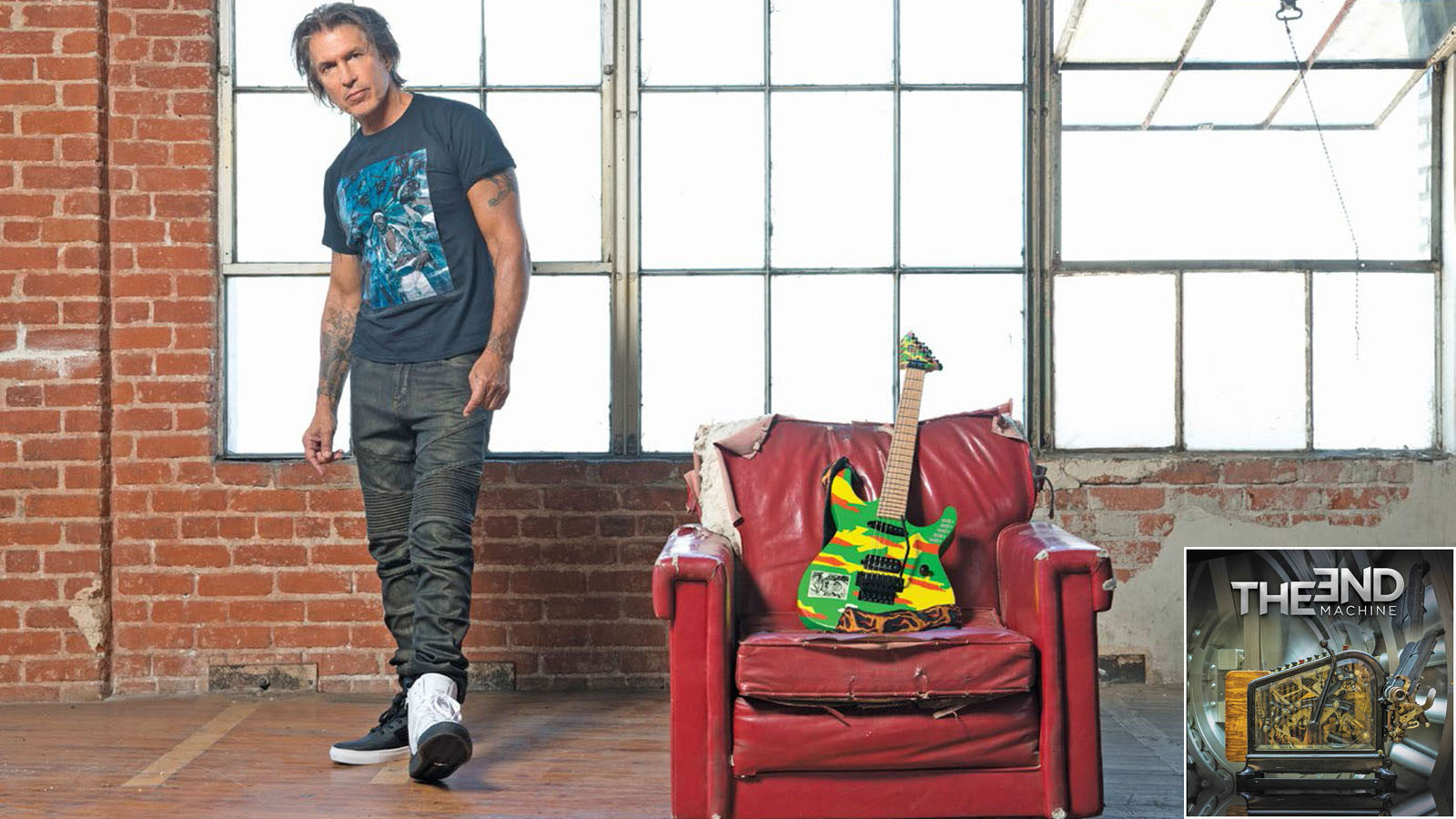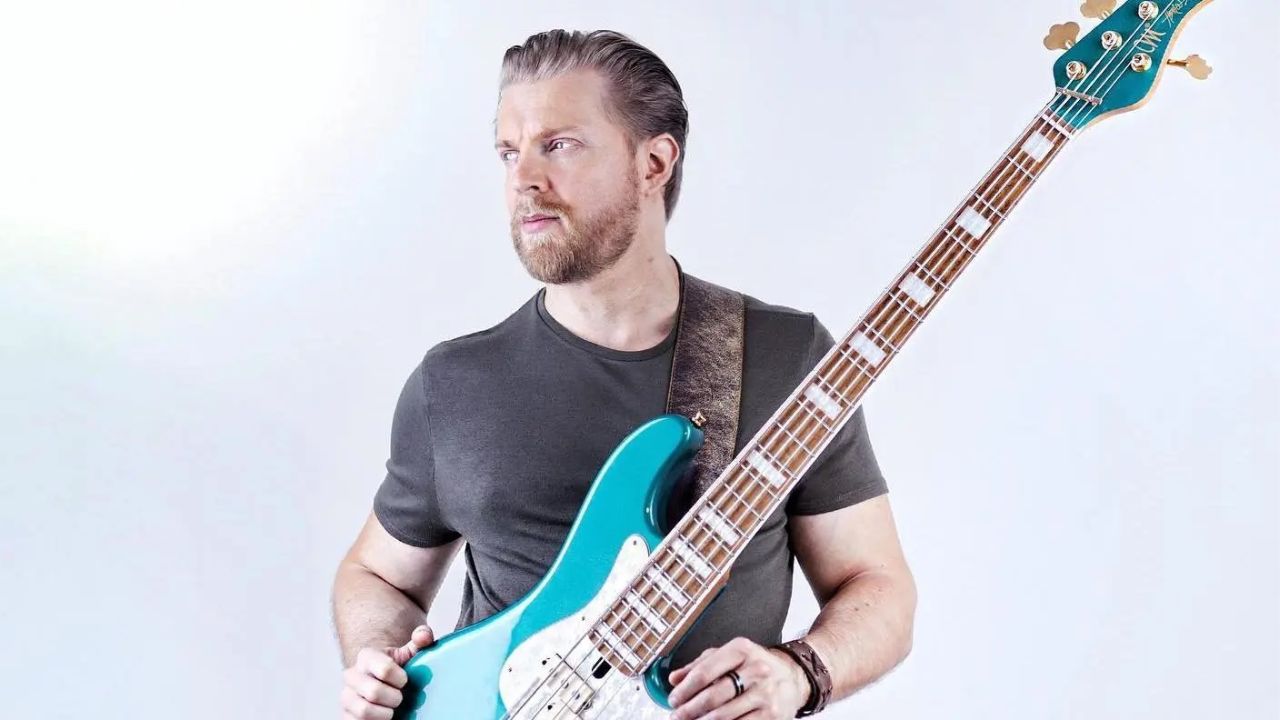The End Machine's George Lynch: "I’ve learned to be open to new things"
George Lynch tells GW how he teamed up with former bandmates Jeff Pilson and Mick Brown to create the lean, mean End Machine.

Over the past few years, George Lynch has reunited with his Dokken band mates on various occasions for live shows. But the closest that fans of that band might get to hearing them back together on record would be to pick up the new self-titled debut album from the End Machine, which finds Lynch reunited with former Dokken bassist Jeff Pilson (currently with Foreigner) and drummer Mick Brown, who continues to play with Dokken to this day. Explains Lynch, “Jeff [Pilson] and I have remained close ever since the Dokken years, and that writing chemistry we had back then is still alive. And we like to feed it and collaborate. So over the decades we’ve done a few projects together, including things like Lynch/Pilson [which released Wicked Underground in 2003] and T&N [which released Slave to the Empire in 2012]. And now we’ve got the End Machine, which is another effort toward fine-tuning our approach.” Though, he admits with a laugh, “it’s all sort of Dokken-esque.”
Indeed, Lynch reveals that at one point he and Pilson went so far as to reach out to singer Don Dokken to contribute to the new material and make The End Machine a full-blown Dokken reunion record. When that didn’t pan out, the band recruited current Warrant vocalist Robert Mason, which, Lynch says, “was a real coup for us, because he’s a ridiculously wonderful singer, and he did an amazing job.”

To be sure, The End Machine is an incredibly strong effort. And while there’s more than a hint of the hard-driving, riff-heavy classic Dokken sound, it’s also a more diverse and expansive affair than fans might expect. Lynch, for his part, opts for a cleaner, more natural-sounding guitar tone than he employed in Dokken’s heyday. It’s one that veers more toward Seventies classic rock than Eighties shred metal.
“I’ve learned over the years that those classic guitar sounds we all know and love are not that distorted,” Lynch says. “And that’s a hard lesson, because you want to crank the volume and the gain because it’s easier to play that way. But when you listen to great bands like AC/DC or Led Zeppelin, it’s not just about heavy guitars. It’s about having space in the music and allowing the other instruments and the production to shine through as well. So I’ve learned to be open to new things.”
To that end, Lynch employed a wide array of guitars in the studio this time, from go-to pieces like his ESP GL-56 to a Linhof Tele, ESP and Fender 12-strings and semi-hollow Gibsons like an ES-335, ES-175 and an ES-295. His amp lineup was similarly diverse, featuring everything from Marshall Plexis and Vox AC30s to a Roland Jazz Chorus and a Watkins Dominator.
“Jeff and I keep evolving in our tone selection and our compositional skills,” Lynch says. “We listen to our old records and there’s a lot of things about [them] that we don’t like, and we try to improve upon them. And we talk about that a lot. We say, ‘How can we get the guitars to sound like this?’ ‘How can we get our records to sound more dynamic?’ We’re always chasing that musical dragon, and so every record we do together is another step toward that.”
The result is a varied record, from the soaring and anthemic “Alive Today” to the grungy blues of “Burn the Truth,” the boogie-ing “Life Is Love Is Music” to the new-wave-y alt-rock of “Hold Me Down.” “There’s little bits of all different things in there somewhere,” Lynch says. “But the overall sort of direction we were going in was just to write groove-oriented, bluesy, smart compositions that are hopefully kind of timeless. At least that’s what we’re striving for. As for how it actually sounds? That depends on who’s listening to it, I guess.”
Get The Pick Newsletter
All the latest guitar news, interviews, lessons, reviews, deals and more, direct to your inbox!
Lynch laughs. “I mean, my wife will listen to it and just say that everything I do sounds like the Eighties.”
Rich is the co-author of the best-selling Nöthin' But a Good Time: The Uncensored History of the '80s Hard Rock Explosion. He is also a recording and performing musician, and a former editor of Guitar World magazine and executive editor of Guitar Aficionado magazine. He has authored several additional books, among them Kurt Cobain: Montage of Heck, the companion to the documentary of the same name.
“I loved working with David Gilmour… but that was an uneasy collaboration”: Pete Townshend admits he’s not a natural collaborator – even with bandmates and fellow guitar heroes
“This guy kept calling saying, ‘I’ve never been in a band before, but I’m the best guitarist ever.’ When I heard him play it was like a fire from heaven”: The life and times of Killing Joke visionary Geordie Walker – the guitar hero’s guitar hero









![[from left] George Harrison with his Gretsch Country Gentleman, Norman Harris of Norman's Rare Guitars holds a gold-top Les Paul, John Fogerty with his legendary 1969 Rickenbacker](https://cdn.mos.cms.futurecdn.net/TuH3nuhn9etqjdn5sy4ntW.jpg)
